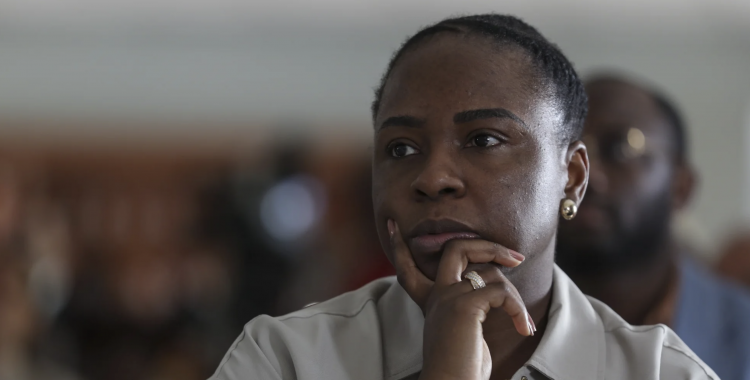"What will happen is a political and social debate on the topic", said Vera Daves de Sousa in an interview with Lusa, on the sidelines of her participation in the Annual Meetings of the International Monetary Fund (IMF), taking place this week in Marrakesh, Morocco, and in which the Minister of Economy, Mário Caetano João, and the governor of the National Bank of Angola, Manuel António Tiago Dias, also participate.
Noting that the Government has a vision that it has already started to implement, the minister added that there is a recommendation from the President of the Republic that in the next phase the executive should be "more inclusive in the debate, involving different strata of society and listening more; what results from this consultation will allow us to make the final decision", admitting that a return to subsidies may even happen.
"We can move forward by removing everything, withdrawing a monthly amount, half, one shot [all at once], or if we don't move forward at all, which has implications, because we know well what the bill is for subsidies and we, at the Ministry of Finance, we have the responsibility, at all times, during this debate, to advocate that this is not a possible scenario, but obviously we have to be open to listening and capturing all sensitivities; at the end of this discussion, then closing what is the path and then move on to the implementation phase", explained Vera Daves de Sousa.
Asked about what will change in this second phase, the minister said that "the effects will be mitigated in a more assertive way, and as the debate progresses we will be alerted about where the shock will be greatest and we will prepare those who will feel the shock for that effect".
Regarding whether the deadline for the total withdrawal of fuels remains, Vera Daves de Sousa declined to specify a date: "Now everything is open, let's have the debate and see what will be decided", she replied.
In June, the Government moved forward with the removal of fuel subsidies, meaning that from one day to the next a liter of gasoline in Angola cost 300 kwanzas compared to the previous 160 kwanzas.
Following the measure, several protests by taxi drivers and popular demonstrations were called, as part of which there were several clashes with the authorities and at least five deaths.
The removal of subsidies was one of the demands of international financial institutions, such as the International Monetary Fund and the World Bank, not only due to the distortion of the market, but also due to the large sums that were diverted from investments in needy sectors such as Education or Health, and it is a movement that is being followed by other African countries, such as Nigeria or Senegal.
In an analysis published in June, the economic studies department of Banco Fomento Angola pointed out that the value of fuel subsidies in 2022 in Angola represented 92 percent of expenditure on Education and Health.
"In 2022, the Angolan State assumed a total subsidy of 1.98 billion kwanzas, with diesel corresponding to almost 68 percent of the total, followed by gasoline with 23.2 percent," said BFA in a comment at the beginning of the withdrawal of fuel subsidies in Angola, at the beginning of June.
"The amounts recorded for subsidies represent around 92 percent of Health and Education expenditure in the [General State] Budget of that year, and are therefore unaffordable from the point of view of budget policy management", the analysts also highlighted at that time.







